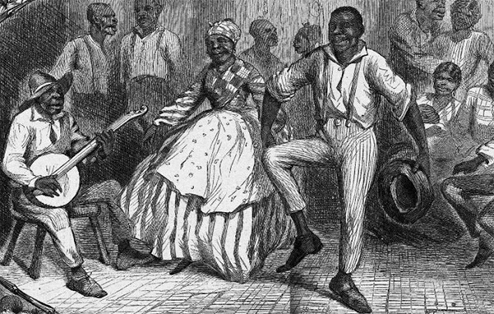Trump: Efforts To Teach Anti-Racism Are Child Abuse

FWIW, the idea of sugar-coating the cruelty against people of color that has defined U.S. history since the country’s inception is not a new one.
Here’s educator Jonathan Kozol from a 1969 essay called “A Talk to Teachers,” discussing why black parents do not trust white teachers and school administrators.
Why don’t they trust us? What on earth could we be doing wrong? I don’t think we really have to look far to find the answer. Teachers go out on strike for all sorts of good and palpable and powerful reasons: they strike for pay, they strike for better working conditions, they strike for extra benefits, occasionally they even strike for issues which have something to do, specifically, with the immediate demands of education. But when, the black community asks us, did we ever strike to bring about racial integration? When, they want to know, did we ever strike to get racist Scott Foreman readers taken out of any grade-school classrooms? When, they ask, did the junior high school teachers of the ghetto ever strike to have the dishonest and openly bigoted and destructive Allyn and Bacon social studies textbooks taken out of their shelves and classrooms?
From Allyn and Bacon, publishers: Our America, a textbook for fourth grade children on our nation’s history:
‘Our slaves have good homes and plenty to eat.’ . . . Most Southern people treated their slaves kindly. . . . ‘When they are sick, we take good care of them.’ No one can truly say, ‘The North was right’ or ‘The Southern cause was the better.’ For in Our America all of us have the right to our beliefs.
and
The streets of this Oasis city of Biskra [in North Africa] are interesting. There are many different people upon them. Some who are white like ourselves have come here from Europe. Others are Negroes with black skins. Yumbu and Minko are a black boy and a black girl who live in this jungle village. Their skins are of so dark a brown color that they look almost black. Their noses are large and flat. Their lips are thick. Their hair is so curly that it seems like wool. They are Negroes and they belong to the black race. Two Swiss children live in a farmhouse on the edge of town. These children are handsome. Their eyes are blue. Their hair is golden yellow. Their white skins are clear, and their cheeks are as red as ripe, red apples.
You were there. You were in the classroom. You were the one who had the education and the professional judgement and, supposedly, the moral character. What did you do? What did you say? The Negro mother asks us: If you ever protested, you must have done it in a whisper: we never heard you.
“Why is it they don’t trust us?” ask the sweet and bewildered white school-ladies to each other. Because we’re frauds and it took the Negroes a long time to figure it out: but now they know it.
Why is it they don’t trust us? Because they had done nothing to deserve being trusted: because they were not trustworthy.
—
It’s quite possible that the aims of the BLM movement, supported by a majority of Americans (and almost everybody outside the United States) will one day succeed. It may not appear possible right this minute, but lots of things seem impossible until they actually happen.
